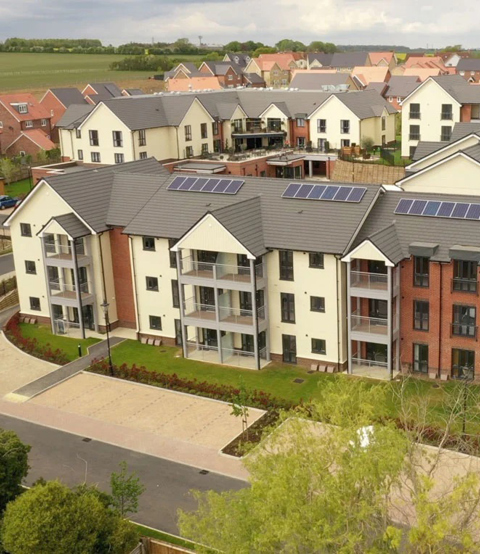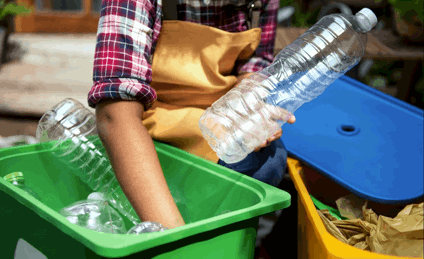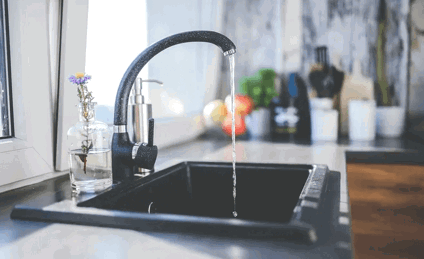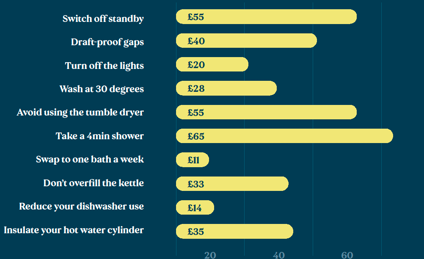
17 Simple Ways to Live More Sustainably
Sustainability should no longer be a nice addition to a business's practices, but an integrated part of it. Being neutral is no longer enough, instead, we must look to create a positive impact.
At Retirement Villages, we’re committed to creating sustainable living for all of our communities and going forward, we plan to build a number of net zero whole life residences. To do so, we have set green targets against three key pillars. These targets aren't just across our business but involve community members, our supply chain, and investors to create systemic change.
What are our three pillars?
- Planet - become a regenerative business
- Circularity - design out waste from our communities
- Social - support the social and economic wellbeing of our communities
This begins by helping our community, and the wider community, make greener choices in their everyday life. Here are 17 practical tips you can implement that may not only have a positive impact on the planet, but on your purse too.
Energy & Carbon
The impact of energy & carbon on the environment
Did you know that 22% of the UK's carbon emissions come from our homes?
That's nearly a quarter of the country's carbon footprint. The good news is that it means if we start practicing greener habits, we can also have a big impact on reducing emissions.
One of the major sources of household emissions is heating. On average, over half the UK's fuel bills are spent on heating and hot water.
They make up so much of our carbon footprint that, in order to reach the Government's net zero target, we need to reduce emissions from heating homes by 95% within the next 30 years.

Tips to reduce your impact
1. Switch to a green energy tariff
Quick, simple and, with the right supplier, cost-effective. There are a host of green energy providers and tariffs to choose from, such as Octopus Energy, Green Energy UK and Ecotricity. Try to find somewhere offering both eco-friendly gas and electricity, as opposed to one or the other.
The energy market is currently highly volatile, so switching providers may not be the best approach right now. It may be something to consider for the future.
2. Get a heat loss survey
Heat loss surveys use thermal imaging to uncover where in a property homeowners may be losing heat and wasting energy. This could include poor heating, draughts and gaps in insulation. Actioning the results of the survey can improve the energy efficiency of your home, helping the environment and saving you money.
Community members can speak to their local Village Team about how to organise a property survey.
3. Install low-carbon heating
Instead of relying solely on renewable sources from your energy supplier, why not incorporate them into your home? Adding low-carbon heating such as solar panels or air source heat pumps can benefit not only the planet, but your purse strings.
4. Shop at your local green grocer or farmer's market
Shopping at your local fruit and veg shop or weekly farmer's market not only helps invest money directly into your local community and economy, it also helps reduce your food mileage.
Food mileage refers to how far the food has travelled before it reaches you. When food is imported from overseas, that can put food mileage in the hundreds and thousands. However, purchasing from your local farmer shrinks your food mileage right down, reducing your carbon footprint.
5. Cut back on animal products
According to the UN, meat and dairy is responsible for around 14.5% of global greenhouse gas emissions. By swapping out dairy for low-CO2, plant-based alternatives or switching meat dishes for vegetarian meals a few times a week, you can reduce your carbon footprint.
To find out what your diet's carbon footprint is, use the BBC's calculator.
6. Use electric vehicles or car share schemes
Switching to an EV (electric vehicle), or even a hybrid, will help reduce your carbon footprint. In fact, driving an EV for one year could save an average of 1.5m grams of CO2. That is the equivalent of driving from London to the South Pole.
Second to getting an EV or hybrid, participating in car share schemes can help reduce your emissions, and those of the people you're sharing with. Car sharing doesn't just have to be for the workplace. Consider car sharing with friends on your weekly supermarket trip or to an exercise class.
With our comprehensive onsite facilities, you may even find yourself using your car less and less! Many of our villages offer free mini-bus services which you can take advantage of.
7. Reduce your energy use at home
There are countless ways to reduce how much energy you're using at home, but some examples include:
- Taking shorter showers
- Switching off standby
- Hanging up wet clothes instead of using the tumble dryer
- Only filling the kettle with the water you need
- Washing clothes at 30 degrees
Waste & Resource
The impact of waste on the environment
We’ve all seen the pictures of vast waste heaps and the devastating Great Pacific Garbage Patch. Household waste is a substantial contributor to this global problem; on average, each person in the UK produces 392kg of household waste each year. That's the equivalent of two large dumpsters full to the brim.
While truths like this can make you feel helpless, there are actually some simple changes you can make to do your bit. In fact, 46% of household waste in the UK is recycled, so if you're currently in that 46%, you're already part of the solution!

Tips to reduce your impact
8. Avoid single-use plastic
Around 5 million tonnes of plastic are used each year in the UK. That's a staggering 12.5 million dumpsters filled to the brim.
There are easy ways to cut back on single-use plastic. Reusable water bottles and coffee cups are a great alternative, and you can often get discount on your coffee if you bring your own cup.
Try buying loose fruit and veg in the supermarket, too. If you still want to keep them in a carrier, opt for an eco-friendly, reusable produce bag. While you're at the supermarket, make sure to bring your own shopping bags!
9. Use refill shops
Refill shops are popping up across city centres and suburban areas and we love them!
You can top up on everything from coffee to dish soap. All you need to bring is a container to store the product in. Not sure where your local is? Speak to your Village Team. You can also Google 'refill shop near me' or post in your local Facebook group.
10. Start composting
Composting takes care of all the food that you don't get round to using, or the skins and peels your food comes in.
While it's not overly complicated, we recommend doing your research on how and what to compost, as well as what not to compost. Your local grocer could be a good place to start when looking for composting advice.
With gardening clubs and allotments across a host of our communities, you may have a local expert you don't know about. This is a great opportunity to reach out to your Retirement Village neighbours for advice.
11. Shop second hand
Fashion has become a target for climate activists, and for good reason. The fashion industry is responsible for around 8-10% of carbon emissions and £140m worth of clothing is sent to UK landfills every year.
Shopping second hand helps reduce the energy and materials used making new clothes. It also reduces the amount of clothes being sent to landfills. Check out your local charity shop next time you walk by.
It's important to us that community members inform the social calendar, so why not suggest adding a Village clothes swap to the agenda?
12. Upcycle or donate
Upcycling furniture is not only a great way to breathe new life into older pieces, but can become an enjoyable hobby, too. Upcycling helps reduce waste and the CO2 emissions that would have been used to create new items.
You can also donate your furniture to a second-hand or charity shop. There are often second-hand furniture stores that will pick up your pre-loved pieces for free, so you don't have to worry about how to transport your old sofa.
Part of the Retirement Village commitment to reduce waste involves adding collection points for e-waste and compost, as well as creating a community pantry and village market place. We want to roll this out to all of our Villages.
Water
The impact of water on the environment
The overconsumption of fresh water means taking it away from the ecosystems that depend on it, such as wetlands and their inhabitants: otters, water voles, heron and fish.
On average, you will use 140 litres of water each day. There are the obvious sources of water use: showers, baths and washing dishes but there are also the more inconspicuous sources. For example, one cotton t-shirt requires 2,700L of water to make. This is the equivalent of 49 baths.

Tips to reduce your impact
13. Use a cistern displacement device
These easy-to-use devices are placed in your toilet cistern and can save around 1L of water for every flush.
If you're a Retirement Village community member, your Village Team can advise you on how to get a cistern displacement device. Otherwise, you can contact your local water supplier to see if they are able to send you one for free.
14. Use water-efficient showers and taps
Reducing the amount of water coming through your shower and taps can have a fantastic impact on your water usage.
Installing a low-flow showerhead can help reduce the amount of water you're using. Our community members can speak to their Village Team about how to get one.
For household taps, tap aerators regulate the flow of water from a faucet. This can reduce the water per minute from 15L to just 6L.
15. Fix dripping taps
While one drop at a time may not seem like much, they add up. In fact, in one week your dripping tap could fill a bath. We recommend fixing leaky faucets sooner rather than later.
16. Capture rain water with a water butt
Water butts collect rain water from your gutter, as opposed to the water running directly into drains. With the water you've collected, you can water your indoor and garden plants, utilising nature's resources.
17. Take shorter showers and fewer baths
Reducing your shower time from ten minutes to four could save up to 1,200L of water monthly. If your bath has a 100L capacity, having a bath biweekly instead of weekly could save up to 200L monthly. Combined, that's 1,400L of water saved by two very easy changes!
Does going green save money?
There are many purse-friendly benefits to living sustainably. In fact, the alternative can be as negative for the planet as it is for your utility bills. Here are some cost savings could see from going green:
In total, you could save £356 a year, enough for a one-week holiday to Spain!

If you take anything away from this, we'd like it to be that small changes can make a big difference. If your entire community gets involved, that could mean a huge difference.
To find out more about your environmental footprint and how you can improve, try the WWF's online quiz.
At Retirement Villages, we will continue to strive towards ambitious goals to help create a more sustainable world.
Once we've hit and surpassed our targets, we'll continue to set more to ensure we're delivering economic, environmental and social value to our local and global communities.
